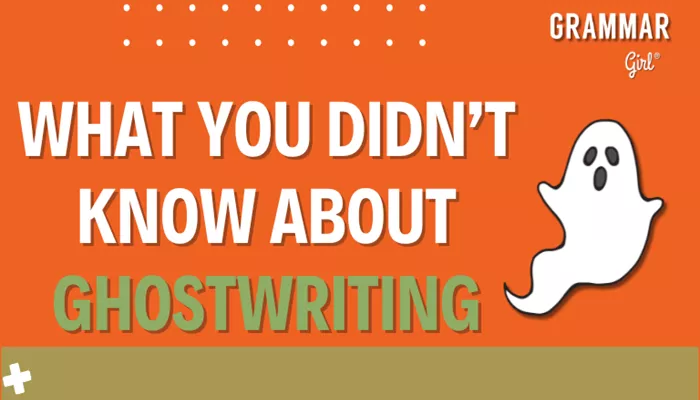In a recent episode of Grammar Girl, Mignon Fogarty sat down with Dan Gerstein, the founder of Gotham Ghostwriters, to delve into the intricacies of fiction ghostwriting, the evolving role of AI in the writing industry, and the changing perceptions of ghostwriting. With over three decades of experience in writing and communications, Gerstein offers a wealth of knowledge about the dynamic and often misunderstood world of collaborative storytelling.
A Deeper Collaboration: The Art of Fiction Ghostwriting
Unlike nonfiction ghostwriting, which primarily focuses on refining and shaping a client’s ideas, fiction ghostwriting is a more intensive creative partnership. Gerstein explains that many individuals seeking help with fiction writing often face challenges beyond simply putting words on paper. The most common struggles involve structuring the narrative, developing complex characters, and other essential elements that bring a story to life.
“Many authors come to ghostwriters with an idea or inspiration, but they are often at a loss when it comes to executing the narrative,” Gerstein explains. “What they need is someone who can help them craft the story—someone to guide them through the complex process of building a fully realized novel.”
Gerstein identifies two primary groups of people who hire fiction ghostwriters: the “dreamers” and the “bucket list writers.” Dreamers are those who wish to transform their ideas into a commercially viable story, sometimes with hopes of adapting it for the screen. Bucket list writers, on the other hand, are individuals who have long carried a personal story they wish to share, even if it remains a private venture intended for friends and family.
Financial Arrangements: Navigating Royalties and Rights
The financial terms of ghostwriting for fiction projects vary widely, depending on the scope of the work and the expectations of the parties involved. In many cases, ghostwriters are compensated with a flat fee. However, for projects with high commercial potential or clients on a tight budget, ghostwriters may opt for a reduced upfront payment in exchange for a share of future royalties or film rights.
“Some ghostwriters are willing to lower their fees if they see significant sales potential,” says Gerstein. “In these cases, they negotiate a larger portion of the back-end profits, such as royalties or film rights.”
However, Gerstein points out that there is no standardized approach to these deals. Experienced ghostwriters, particularly those with agents, are often in a better position to negotiate favorable terms, especially when it comes to derivative rights like film adaptations.
The Changing Perception of Ghostwritten Fiction
While ghostwritten celebrity fiction often faces skepticism—particularly when readers wonder, “Did they really write this?”—Gerstein believes this criticism is more about public expectations than ethics.
“If an author misleads their audience by claiming they wrote the book themselves, that’s where criticism is justified,” he explains. “But otherwise, it’s unfair to criticize ghostwriting. Most celebrities are not professional writers, and that’s simply not their job.”
He also notes that there is a growing movement toward greater transparency in the industry. Just as translators and editors are now receiving public credit for their contributions, there is a push to formally acknowledge ghostwriters as part of the creative team behind the book, rather than relegating them to mere acknowledgments.
The Impact of AI on the Writing Industry
Artificial intelligence is making waves in the writing world, and ghostwriting is no exception. Gerstein breaks down AI’s role into tiers. Low-cost content writing, particularly for SEO purposes, is being heavily impacted, while mid-level writers are adjusting by shifting into roles that involve AI prompting, editing, and project management. However, for high-level ghostwriters, the outlook remains different.
“People are going to try using AI for ghostwriting, and they’ll fail miserably,” Gerstein says. “The real value a professional ghostwriter provides happens long before a single word is written.”
According to Gerstein, the true essence of ghostwriting lies in the development of ideas, extracting personal stories, and crafting a narrative arc—tasks that AI is not equipped to handle. In fact, Gotham Ghostwriters has seen an influx of clients who initially experimented with AI tools but eventually sought out human ghostwriters to bring their projects to fruition.
Despite this, Gerstein acknowledges that AI can still play a role in increasing productivity for experienced writers.
“Elite ghostwriters can leverage AI to handle some of the more time-consuming aspects of the writing process,” he says. “This allows them to take on more projects and ultimately increase their earnings.”
Fostering a Culture of Collaboration
As ghostwriting becomes more accepted and recognized within the literary community, Gotham Ghostwriters is at the forefront of promoting this collaborative approach. One of their initiatives is the launch of “The Andys,” an award designed to honor collaborative book projects. The award acknowledges both the author and the ghostwriter as equal contributors to the work, further shifting the cultural narrative around ghostwriting.
As the landscape of fiction ghostwriting continues to evolve, Dan Gerstein’s insights provide a valuable perspective on the changing nature of collaboration in storytelling, the rise of AI, and the growing acceptance of ghostwriters as integral members of the creative process.

